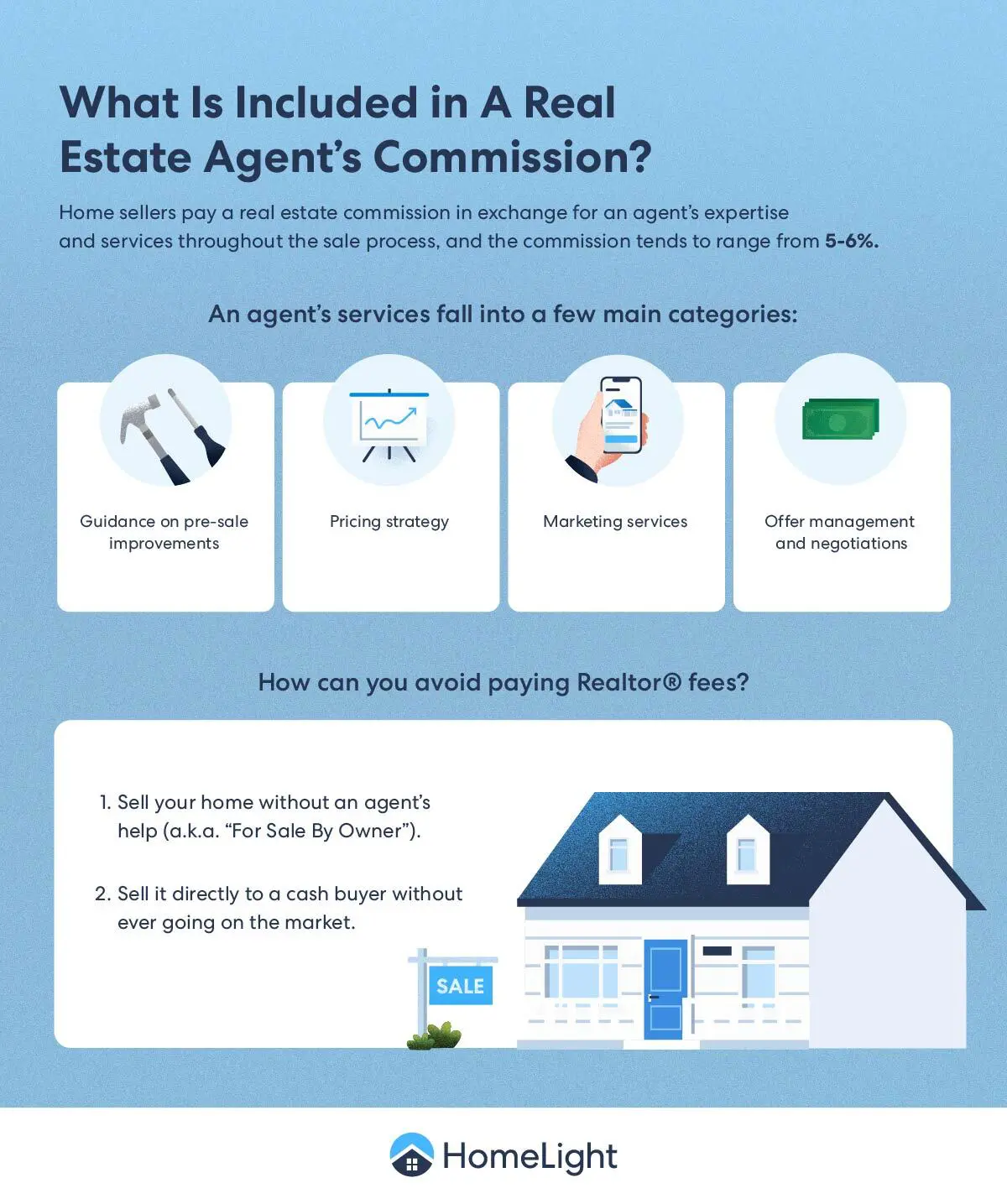What’s the Average Massachusetts Real Estate Commission Rate?
- Published on
- 7 min read
-
 Courtney DuChene, Contributing AuthorClose
Courtney DuChene, Contributing AuthorClose Courtney DuChene Contributing Author
Courtney DuChene Contributing AuthorCourtney DuChene is a freelance writer covering business, personal finance and real estate, based out of Philadelphia.
-
 Richard Haddad, Executive EditorClose
Richard Haddad, Executive EditorClose Richard Haddad Executive Editor
Richard Haddad Executive EditorRichard Haddad is the executive editor of HomeLight.com. He works with an experienced content team that oversees the company’s blog featuring in-depth articles about the home buying and selling process, homeownership news, home care and design tips, and related real estate trends. Previously, he served as an editor and content producer for World Company, Gannett, and Western News & Info, where he also served as news director and director of internet operations.
Editor’s note: On March 15, 2024, the National Association of Realtors (NAR) announced a landmark lawsuit settlement that will change the way real estate agent commissions are handled in the future. These changes will “decouple” seller and buyer agent compensation. Industry experts predict that this decoupling will likely lower agent fees and give buyers the ability to negotiate commission amounts directly. Learn more.
Most real estate agents in Massachusetts get paid through commissions. Commissions are typically calculated as a percentage of a property’s sale price, though some brokerages will charge a flat fee. Accounting for both the buyer’s and seller’s agents, the average agent commission rate nationwide is 5.8% of the home sale price, according to HomeLight’s real estate transaction data of thousands of home sales each year. But how does that compare to the average real estate commission rate in Massachusetts?
In this post, we’ll help you determine how much commission you might pay on your Massachusetts home sale, and what options are available to earn the highest proceeds possible.
What’s the average real estate commission in Massachusetts?
According to top-performing Lawrence real estate agent Jefri Liriano, selling a home in Massachusetts can include 5%-6% in agent commissions, with some variation based on location within the state and the broker you use. “Commissions will vary depending on the agents and how they run their business,” Liriano says.
On a Massachusetts property worth the current statewide median home sale price of $650,000, that amounts to $32,500–$39,000 in commission costs.
Using an overall statewide average of 5.5%, and assuming the buying side and the selling side both agreed to a 2.75% commission each, here’s a breakdown of how much you might pay in real estate commissions based on what a home sells for in six of the largest cities in Massachusetts:
| Massachusetts city | Median home price | Typical commission at 5.5% | Agent commission at 2.75% |
| Boston | $915,000 | $50,325 | $25,163 |
| Worcester | $450,000 | $24,750 | $12,375 |
| Springfield | $300,000 | $16,500 | $8,250 |
| Cambridge | $2,850,000 | $156,750 | $78,375 |
| Lowell | $510,000 | $28,050 | $14,025 |
| Brockton | $500,000 | $27,500 | $13,750 |
Median home price source: Massachusetts Association of Realtors
HomeLight gathers agent commission data from cities throughout the U.S. To see if we have commission rates for your city, try our Agent Commissions Calculator. You might also be interested in our Home Value Estimator.
Still curious about commission rates in Massachusetts? Here are the answers to common questions about real estate agent commissions:
Who pays real estate commission fees?
The commission used to be paid by the home seller, and the seller’s agent will then split the commission with the buyer’s agent. Following the implementation of the NAR lawsuit settlement terms, this commission structure has been updated to decouple the commission terms of agents involved in a transaction.
The seller will be paying for the listing agent’s commission, while the buyer’s agent can negotiate with the buyer directly for their commission. The seller may also offer to pay the buyer’s agent’s commission to help market their property, though commission details are no longer allowed to be added to the multiple listing service (MLS) listing. The listing agent can instead communicate with the buyer’s agent off-site.
We’ll review how commission splits work in Massachusetts in the next section.
When is the commission paid?
The real estate commission will automatically be deducted from the sale proceeds at the time of closing. Until then, you won’t owe any money to the real estate agent.
If you’re curious about how much you might make on your home sale after paying commissions and other selling costs, try our Net Proceeds Calculator.
Does the agent get to keep the full commission?
Although the seller pays the listing agent’s commission, the listing agent, who is representing the seller in a transaction, doesn’t keep it all. Part of their commission will go toward marketing your property with professional photography, open houses, offline marketing, and more.
Both the listing agent and the buyer’s agent will also share a percentage of their commission with their sponsoring broker.
These split rates can vary; however, it’s common for the listing agent to give their broker anywhere from 30%-50% of their commission, depending on the agent’s level of experience, their market size, and brokerage agreement.
Liriano says that, in Massachusetts, listing agents often make between 3%-4% commission, while buyers agents get around 2%, for a total of 5%-6% of the sale price going to commissions.
The reason for the difference between the listing and buyer’s agent commissions? Liriano notes that many properties in Boston and the North Shore of the state are multi-family homes, so an agent will likely be doing additional staging and marketing work. Other parts of the state where single-family homes are more prevalent may see buyer-side and seller-side commissions closer in range. Liriano sees both in the neighborhoods he serves.
“We have a good niche here on multi-families and single-family homes in our residential areas,” he says.
How is the commission divided between agents?
As with most aspects of a home sale, the commission terms can be subject to negotiation. Let’s say you sell your Massachusetts home for $400,000 and you agreed to pay a 3% commission to your listing agent and a 3% commission to the buyer’s agent. You pay a commission of $24,000, and each agent has a 70/30 split agreement with their brokerage. Here’s how that split on a single-family home might look:
- Listing agent: $8,400 (70% of their $12,000 commission share)
- Listing broker: $3,600 (30% of their $12,000 commission share)
- Buyer’s agent: $8,400 (70% of their $12,0000 commission share)
- Buyer’s broker: $3,600 (30% of their $12,000 commission share)
Are Massachusetts commission rates negotiable?
You can negotiate real estate agent commission rates, but don’t be surprised if your agent holds firm on how much they charge. A Consumer Federation of America report found that only 27% of agents are willing to negotiate the commission.
One reason agents often don’t lower their rate is that it may reduce their ability to negotiate a higher sale price for the seller. An agent’s services often include photography and pricing analysis, so a lower commission could also translate into a smaller marketing budget for your property, an inaccurate list price, fewer home promotions, and a lower likelihood of selling.
Liriano likes to explain to his clients how real estate agent commissions work upfront. That way, they understand how the fee is calculated and how it is being used.
“People need to understand how the commission is calculated, because the more clear we have that part, the better the relationship will be,” he says. “I’ve been in transactions where we agree on listing this property for $900,000. And then [we] ended up selling for like $1.3 million. So, the commission that was calculated at the beginning is not the same.”
If you’ve found your own buyer
Exceptions can occur if you’ve already found a buyer. Let’s say you’re selling a home to a friend, or have decided to sell to a family member. In that case, the agent would likely be willing to play the role of transaction coordinator and independent go-between for a reduced commission rate.
“I can actually provide a discount because they found the buyer and there’s not going to be another agent,” Liriano says. “The client will feel appreciated, and it shows that you’re being fair.”
Overall, commissions in Massachusetts are negotiable but do your research first. When asking an agent to lower their pay, you’re limiting the pool of agents willing to work with you. And the downsides to working with a low-commission agent can be steep. Without a top Massachusetts-based agent in your corner, you could dramatically undersell your home, have a rough selling experience, or fail to sell the home at all.
“There are agents that sell themselves short on charging commissions,” Liriano says.
What is included in a real estate agent’s commission?
A full-service real estate agent in Massachusetts will provide a high level of offerings that go toward giving you a great selling experience and boosting exposure to your home.
An agent’s services fall into a few main categories:
Guidance on pre-sale improvements
Agents see a lot of houses in their Massachusetts markets. They will have an eye for the small but impactful improvements you could make to help it sell for more. The best agents will go above and beyond to help their clients get the job done.
Pricing strategy
An agent will put together a comparative market analysis in the form of a thick packet featuring charts, facts, figures, and photographs of houses. The analysis will show you what your home is worth based on comparable sales in the neighborhood, market trends, and local price per square foot. This key tool helps you set a realistic price that can attract offers right off the bat in a fraction of the time it would take a non-professional to determine.
Liriano has helped his sellers adapt to rising interest rates, which might be limiting buyers’ spending power. He’s been able to point out when homes might be overpriced and risk falling short of an appraisal.
“The prices are not going down, but the buying power is going down,” he says. “If you are overpriced, you need to bring that price down.”
Marketing services
As part of their commission, at a minimum, Massachusetts agents should offer expert home prep and staging, professional photography, marketing flyers and pamphlets, direct mail, automatic postings of your listing on major home search sites, local advertisements, exclusive previews for other brokers, and open house coordination. Advanced agents may also offer the development of a virtual tour.
“You will not be able to do a good job if you don’t have a good commission because you will not have a good amount of money for marketing,” Liriano says.
Offer management and negotiations
When you receive one or multiple offers, an agent will help you determine the strength of the offer and work with you to proceed with responding to buyers. They’ll advise on whether to accept, reject, or make a counteroffer while putting together offer spreadsheets to identify the best offer in bidding war situations.
If a buyer requests repairs after the inspection, an agent will help you push back where appropriate and advise on when to concede. Should the appraised value be lower than the contract price, an agent can help you determine whether to ask the buyer to make up the difference or if you should lower your price.
Market knowledge and neighborhood expertise
Great Massachusetts real estate agents know what local buyers seek in homes and which of your home’s attributes to highlight. An agent will skillfully incorporate key features into your home’s listing description and immediately be able to recognize what makes your house or the surrounding area special.
Timing, too, is key for Massachusetts-based sellers. Liriano points out that the real estate market in the state is heavily seasonal, with buyers searching for homes mostly in the spring and summer. The market slows down in July, when many people go on vacation, and again in November around the winter holidays. Listing your home at the right time can help it sell quickly and attract more offers. “The market has its cycles,” Liriano says.
To find the best month to list your Massachusetts house for the highest price and the fastest sale, enter your city in our free online Best Time To Sell calculator.

What is a fair real estate commission in Massachusetts?
As noted above, the average commission rate in most Massachusetts markets is between 5%-6% to hire a full-service real estate agent. This rate should mean you have an agent who is dedicated to selling your home for the best possible price, who is available and communicative, and who is willing to shepherd the transaction from start to finish. If an agent isn’t willing to offer all or the majority of services listed above, you should focus on interviewing real estate agents who do.
What if my Massachusetts house doesn’t sell?
Real estate agents only get paid commissions if and when your home sells successfully. Most real estate contracts include an exclusive right to sell, which gives the real estate agent the sole rights to market the property, list the property on MLS, and receive the commission if the sale closes in a determined time frame. If your house remains on the market beyond the time period outlined in the listing agreement, you are not obligated to pay your agent.
However, keep in mind that your listing agreement may contain a protection clause, also known as a “brokerage protection clause,” “safety clause,” “extension clause,” or “tail provision.” The protection clause states that if a buyer who the listing agent introduced to the property purchases the property after the listing agreement expires, the seller still must pay the agent a commission.
How can you avoid paying Realtor fees?
There are two main ways to avoid paying Realtor® fees. You can either sell your Massachusetts home without an agent’s help or sell it directly for cash offers without ever putting it on the market.
For Sale By Owner
Without a real estate agent, you’re responsible for preparing your home for sale, marketing, negotiating, and navigating legal and financial documents. When selling a house on your own, you’ll need to hire an attorney, at a minimum, to make sure the paperwork is right.
Typically, For Sale By Owner (FSBO) makes the most sense if you already have a buyer. Sellers are often drawn to for sale by owner benefits, but in 2023, 57% of FSBO sellers knew their buyer.
This indicates that while the FSBO route is rare, making up just 7% of sellers, it’s even more rare to forgo a real estate agent’s help when you don’t already have a buyer lined up and ready to go. In addition, according to a 2023 National Association of Realtors report, the median FSBO house sold for $310,000, compared to a median of $405,000 for agent-assisted sales. That’s a significant loss of proceeds in an effort to save 3%-6% on commissions.
Sell to a cash buyer
Cash buyers — including iBuyers, investors, and house-buying companies — are individuals or entities that purchase your home outright without the need for lender financing. These buyers typically make off-market purchases and can provide speed and convenience to sellers.
Just be aware that the price offered by most cash buyers may not match what you could receive on the open market with the help of a top agent.
If you’re interested in a cash sale, you can receive a no-obligation offer through HomeLight’s Simple Sale platform, with no hidden fees or agent commission. Simple Sale connects you to the largest network of cash buyers in the U.S.
Now you know how Massachusetts agent commissions work
Sellers and buyers pay real estate commissions in exchange for an agent’s expertise and services throughout the sale process. If you’re a seller worried about the cost of the commission, consider that targeted upgrades, stellar marketing, and savvy negotiations can help you maximize your sale price. With a performance-proven Massachusetts agent to guide you, you also avoid the stress of navigating this complex process without professional oversight.
“People want to know the bottom line: how much you charge,” Liriano says. “I make sure that I let them know what it is that we charge for that specific type of property in that situation that we are with them.”
The key is finding a quality agent who provides the highest amount of value for their commission fee. In fact, our transaction data shows that the top 5% of agents in Massachusetts sell homes for as much as 10% more than the average agent.
HomeLight can connect you with top Massachusetts agents with experience tailored to your needs. Whenever you’re ready to get started, HomeLight would be happy to put your commission worries to rest by introducing you to several agents in your area who are well worth it.
Writer McCoy Worthington contributed to this story.
Header Image Source: (Michael Baccin / Unsplash)
- "National Association of REALTORS® Reaches Agreement to Resolve Nationwide Claims Brought by Home Sellers," NAR (March 2024)
- "REAL ESTATE COMMISSION RATES IN 35 CITIES: UNIFORMITY AND VARIABILITY," Consumer Federation of America, Stephen Brobeck (April 2022)
- "What Does Exclusive Right To Sell Mean?," Quicken Loans, Ashley Kilroy (June 2023)
- "Current Listings, Section 17: Protection Clauses in Association MLS Standard Listing Contracts (Policy Statement 7.37)," NAR (January 2024)
- "Highlights From the Profile of Home Buyers and Sellers," NAR (November 2023)









